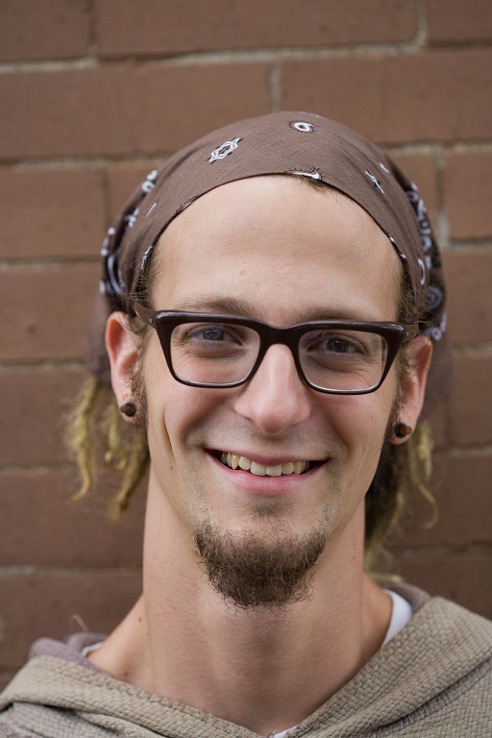I was listening to the Quick to Listen interview with Thomas Kidd about his new book, Who is An Evangelical, and heard a startling advertisement. Just about 32 minutes into the discussion, I heard Truett Seminary, the Southern Baptist institution for training ministers at Baylor University, plug its programs. Although the seminary describes itself as “orthodox” and “evangelical,” in that order, it also trains women to be pastors. The advertisement was explicit about that part of Truett’s endeavor. Here‘s an excerpt from a piece on Truett’s female alums:
Another reality for many Baptist women called to preach is whether to remain inside the Baptist denomination or to move to a denomination more open to female pastors. As Lillian enters her final semester at Truett, she is considering another denomination. As the daughter of a Baptist preacher and a Baptist all her life, this is a difficult decision to make. But Lillian is a woman in her fifties who has been divorced and she has to accept the fact that there may not be a place for her in Baptist life. She says, “I have already been turned down by one church as their music minister, because I was divorced. Being a woman and talking about preaching makes most people uncomfortable so I have to be careful what I say.” Lillian believes she is called to preach, not to divide churches. She loves the church and the people of God and believes that she will be a good pastor. Although the future is unclear, she resolves to remain hopeful, positive, and faithful to her call.
Leah also faced changing denominations, but says that she could not move because she is committed to Baptist beliefs and core ideas. She says, “…I see myself committing to this and so at the same time calling churches to committed to calling women, because I am not giving up on the Baptist church and the Baptist church doesn’t not need to be giving up on women either.”
Now, see if you can follow the bouncing balls.
Kidd has written a book about Protestants who have been generally opposed ordaining women. Evangelicals typically affirm traditional family values and roles for women (though that is not a big part of his book). Kidd is also a regular blogger at The Gospel Coalition which is firmly in the complementarian camp. The editors at Christianity Today who interviewed Kidd, at least one of them, is in a mainline Protestant denomination that ordains women. And the podcast is being sponsored by a Southern Baptist seminary that supports the ordination of women.
To add to potential confusion, maybe you younger readers have the visual dexterity, Kidd is going to teach part-time in the graduate programs at Midwestern Baptist Seminary, a school that admits women to the M.Div. but does not train them to preach:
Purpose: The Master of Divinity degree, Women’s Ministry concentration, cultivates a Christian lifestyle, offers instruction in classical theological disciplines, and develops theoretical understanding and practical skill related to women’s ministry.
Objectives: In addition to the Master of Divinity degree objectives, students graduating with the M.Div., Women’s Ministry concentration will be able to do the following:
Demonstrate understanding of the biblical and theological foundations of women’s ministry in the local church.
Demonstrate increased skill in the practice and leadership of women’s ministries in the local church.
In fact, women at MBTS take courses not in preaching but teaching.
If you want an additional shell to follow, consider that Ed Stetzer went from Lifeway Christian Resources to Wheaton College. Lifeway is the publisher for the SBC but also controlled by conservatives, the ones who are inerrantists and generally oppose female pastors. The moderates in the SBC look to Smyth & Helwys as their publisher for theology and biblical commentary. Wheaton College has many faculty in denominations that ordain women and even has had some female professors who are ordained to preach.
So, go ahead, try and correlate Southern Baptist conservatives with evangelicals. I dare you. See if it makes any sense for evangelical (what used to be a Yankee word in the SBC) institutions to establish closer ties with Southern Baptists except for increasing readership, audiences, enrollments, and subscriptions.
It makes you wonder about looking to conservatives in the SBC for leadership in evangelical circles if only because the Convention may be as soupy as evangelicalism. Look at what Trump has done to turn Southern Baptist conservatives from supporting Republicans to dabbling with progressives. Withdrawing support from the GOP is fine. It’s a free country. But it took Trump to do that?
And yet, because of their size and their presence in evangelical institutions like Christianity Today, Wheaton College, and The Gospel Coalition, Southern Baptists, no matter the previous identification with Republicans and their opposition to female preachers, are in a position to dominate an evangelical world that has no obvious successor to Billy Graham and the institutions that grew up around his endeavors.
Maybe the solution is Beth Moore. Maybe she can transcends all the parties and unite moderates and conservatives in the SBC along with evangelicals. Maybe she is the next Billy Graham. That way, if you like her, as George Marsden had it about Graham, you can be an evangelical.










